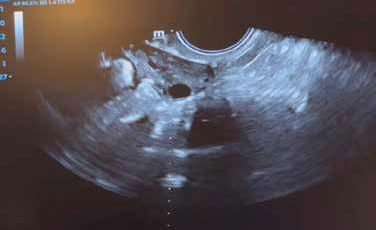Ovarian Rejuvenation
Ovarian rejuvenation is a relatively newer procedure in ART to treat ageing ovaries in patients with premature ovarian failure. It allows the patient to use her own oocytes to conceive. Ovaries play a crucial role in IVF treatment. Good ovarian function equals more healthy eggs, more chance of good quality embryos and thereby better pregnancy rates.
The aim of ovarian rejuvenation is to reactivate the stem cells and follicles in the ovary to improve ovarian response in assisted reproduction treatments.
This therapy is carried out through bio-stimulation with plasma rich in platelets (PRP)
What is PRP?
Platelet-rich plasma is obtained from the patient’s own blood. It contains high concentration of platelets and is obtained after separating the components of a blood sample by centrifugation. PRP, once activated, triggers processes that produce the release of Growth Factors (GFs).Growth factors stimulate the body’s own mechanisms for repairing damaged or deteriorated tissue.In this specific case, restoration and rejuvenation of the ovaries is brought about by PRP instillation
How is PRP prepared?
PRP preparation is done in 4 steps:- Step 1: Taking blood from the patient
- Step 2: Separation of platelets and selection by centrifugation
- Step 3: Release of growth factors (GF)
- Step 4: Injection of PRP into the ovaries

Which patients are eligible for ovarian rejuvenation?
- Patients with low ovarian reserve
- Poor egg quality
- Premature ovarian failure
- High rates of oocyte aneuploidy

What are the advantages of this procedure?
- It is prepared from the patient's own blood, so no outside drug or material is injected into the body
- It is a very simple & relatively inexpensive process.
Are there any side-effects?
- No. There are no side effects related to the procedure
What precautions are necessary post procedure?
- Continuation of medication
- Avoid vaginal douching
What are the limitations of this procedure?
- It is not a sure shot procedure. The result is variable in different patients.
- It is not a permanent cure.
- The beneficial effect reduces over a period of time
Recent evidence states that supplementation with PRP may restore ovarian function, enabling the reactivation of folliculogenesis process and reduction in FSH which can lead to a better IVF outcome. However, the evidence for clinical application of intraovarian PRP injection is still undergoing trials and requires further elucidation.



